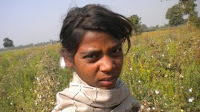
Taking a whole-school approach to wellbeing
Wellbeing is more than just mental health. It encompasses physical wellness, a sense of belonging, social inclusion and basic needs such as food, safety and shelter. If we consider this broader sense of wellbeing it becomes clear we must consider it to for our pupils to achieve and be successful. Read More



